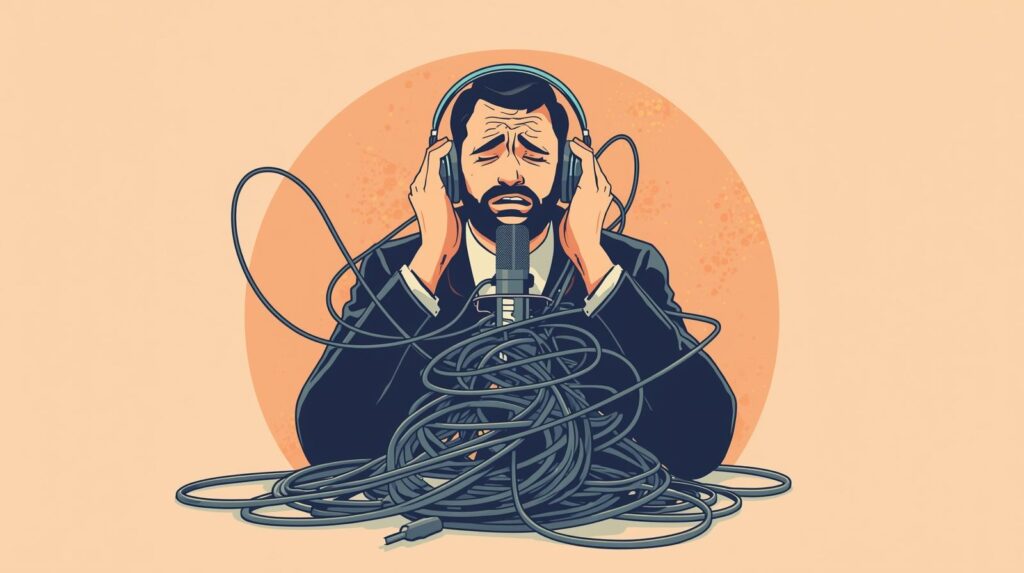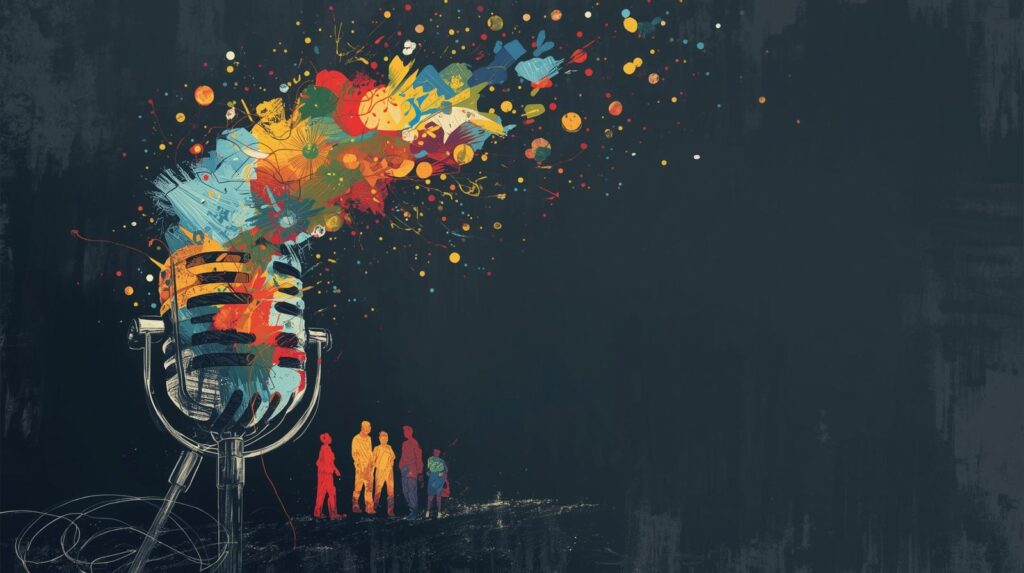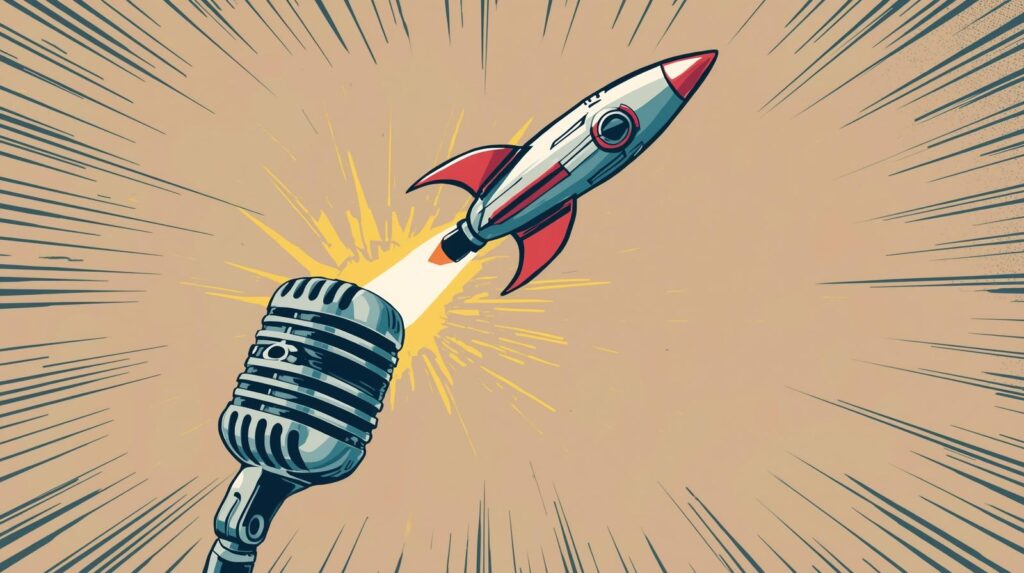So, you’re starting a podcast. Congratulations! You’re joining a vibrant, ever-growing community of storytellers, educators, comedians, and changemakers who are using the power of audio to connect with the world. The thrill of hitting “record,” crafting your first episode, and imagining your voice reaching eager ears across the globe is intoxicating — and it should be!
But here’s the reality check: podcasting is deceptively simple. Press record, talk into a mic, upload — done, right? Not quite. Behind every smooth-sounding, binge-worthy show is a creator (or team) who learned the hard way — by making mistakes.
The good news? You don’t have to. We’ve compiled the 10 most common beginner podcasting mistakes — and, more importantly, how to avoid them. Whether you’re recording in your closet or your kitchen, these tips will save you time, frustration, and possibly your sanity.
Let’s dive in.
1. Skipping the Planning Phase
The Mistake: Jumping straight into recording without defining your show’s purpose, audience, format, or schedule.
Why It Matters: Without a clear plan, your podcast can quickly become unfocused, inconsistent, or irrelevant to listeners. You’ll burn out faster and struggle to grow.
How to Fix It: Spend time answering these questions:
- Who is my ideal listener?
- What problem does my show solve or what value does it provide?
- How often will I release episodes?
- What’s my show’s format? (Interview, solo, narrative, etc.)
- What’s my long-term vision?
Create a simple one-page “podcast blueprint” to guide you. Revisit and revise it as you grow.
2. Ignoring Audio Quality
The Mistake: Assuming “content is king” means listeners will tolerate muffled, echoey, or distorted audio.
Why It Matters: Poor audio is the #1 reason people abandon podcasts. Even brilliant content can’t survive bad sound. Listeners equate audio quality with professionalism and trustworthiness.
How to Fix It:
- Invest in a decent entry-level mic (e.g., Blue Yeti, Audio-Technica ATR2100x).
- Record in a quiet, carpeted, or padded space (blankets on walls work!).
- Use free tools like Audacity or GarageBand to reduce noise and normalize levels.
- Always wear headphones while recording to monitor audio.
Pro tip: Record a test episode and listen back critically — or ask a brutally honest friend.
3. Overcomplicating the Tech Setup
The Mistake: Buying expensive gear or downloading complex software before understanding your actual needs.
Why It Matters: Overwhelm kills momentum. You don’t need a studio to start — you need clarity and consistency.
How to Fix It: Start simple:
- One good mic.
- One pair of headphones.
- One free editing tool.
- One reliable hosting platform (like Buzzsprout, Podbean, or Captivate).
Learn as you go. Upgrade gear only when your current setup limits your growth — not because a YouTube review told you to.
4. Neglecting Show Notes and Metadata
The Mistake: Publishing episodes with no show notes, vague titles, or missing episode descriptions.
Why It Matters: Show notes help with SEO, accessibility, and listener engagement. Metadata (titles, descriptions, tags) helps your podcast appear in searches and directories.
How to Fix It:
- Write clear, keyword-rich episode titles (e.g., “How to Budget on a Tight Income — Ep. 12”).
- Include timestamps, links, and key takeaways in show notes.
- Add relevant tags and a compelling podcast description in your hosting dashboard.
- Always upload custom cover art (1400x1400px, readable at thumbnail size).
Think of each episode as a mini-webpage — optimize it!
5. Inconsistent Publishing Schedule
The Mistake: Releasing episodes “whenever you feel inspired,” leading to long gaps between content.
Why It Matters: Inconsistency trains listeners not to expect you — and algorithms not to promote you. Podcast apps favor shows that publish reliably.
How to Fix It:
- Commit to a realistic schedule (e.g., biweekly > weekly if weekly is too much).
- Batch-record multiple episodes in advance.
- Use a content calendar to plan topics and deadlines.
- Communicate schedule changes to your audience — transparency builds trust.
Consistency > frequency. Better to publish every two weeks reliably than weekly sporadically.
6. Talking at Listeners Instead of With Them
The Mistake: Monologuing for 45 minutes without considering your audience’s attention span, needs, or feedback.
Why It Matters: Podcasting is intimate. Listeners want to feel seen, heard, and valued — not lectured.
How to Fix It:
- Imagine you’re talking to one person (your “ideal listener”) — not a crowd.
- Ask questions, invite feedback, and mention listener comments or emails.
- Keep intros short. Get to the point quickly.
- Edit ruthlessly. Cut fluff, tangents, and “ums.”
Bonus: Add a call-to-action at the end (“DM me your thoughts,” “Leave a review,” etc.).
7. Not Promoting Your Podcast
The Mistake: Assuming “if you build it, they will come.” Hitting publish and waiting for downloads to roll in.
Why It Matters: There are over 5 million podcasts. Without promotion, yours is a whisper in a hurricane.
How to Fix It:
- Share every episode on social media (with audiograms or quote graphics).
- Tell friends, family, and email lists.
- Guest on other podcasts or invite guests with their own audiences.
- Submit to podcast directories and niche communities.
- Repurpose clips into Reels, TikToks, YouTube Shorts, or blog posts.
Promotion isn’t bragging — it’s service. You’re helping people find value they didn’t know existed.
8. Comparing Your Episode 3 to Someone’s Episode 200
The Mistake: Measuring your raw, early-stage podcast against established, polished shows and feeling discouraged.
Why It Matters: Comparison kills creativity. Every pro podcaster started with awkward silences, bad edits, and single-digit downloads.
How to Fix It:
- Focus on your own progress: “Is Episode 4 better than Episode 3?”
- Celebrate small wins: first 5-star review, first listener DM, first 100 downloads.
- Study successful shows for inspiration — not intimidation. Reverse-engineer their growth, don’t envy it.
- Keep a “progress journal” to track improvements over time.
Your podcast is a marathon, not a sprint. Growth compounds.
9. Forgetting to Have Fun
The Mistake: Turning your passion project into a chore by obsessing over metrics, perfection, or external validation.
Why It Matters: If you’re not enjoying the process, it’ll show — and your audience will feel it. Burnout is real.
How to Fix It:
- Schedule “play episodes” — no agenda, just you being you.
- Take breaks when needed. It’s okay to pause.
- Remind yourself why you started. Write your “why” on a sticky note.
- Celebrate the joy of creation, not just consumption.
Podcasting should energize you, not exhaust you.
10. Not Asking for Reviews or Feedback
The Mistake: Never asking listeners to rate, review, or share your show — then wondering why growth is slow.
Why It Matters: Reviews boost visibility in directories (especially Apple Podcasts) and build social proof. Feedback helps you improve.
How to Fix It:
- Politely ask for reviews at the end of episodes (“If you’re enjoying the show, please leave a 5-star review — it helps more than you know!”).
- Make it easy: link directly to your Apple Podcasts or Spotify page in show notes.
- Offer a small incentive (e.g., “DM me your review screenshot for a shoutout!”).
- Actively respond to reviews and DMs — build community.
People want to support creators they love. Give them a clear way to do it.
Wrapping Up: Progress, Not Perfection
Look — your first episode won’t be perfect. Your tenth might not be either. And that’s okay.
The most successful podcasters aren’t the ones with flawless audio or viral hits. They’re the ones who kept going. Who learned from mistakes. Who prioritized connection over clicks. Who fell in love with the process, not just the outcome.
Avoid these 10 mistakes where you can, but don’t let fear of failure silence your voice. Hit record. Hit publish. Hit repeat.
Your voice matters. Your story matters. The world is waiting to listen.
Now go make something only you can make.
🎙️ You’ve got this.
—
Got a podcasting mistake you learned the hard way? Share it in the comments — let’s help each other grow!


